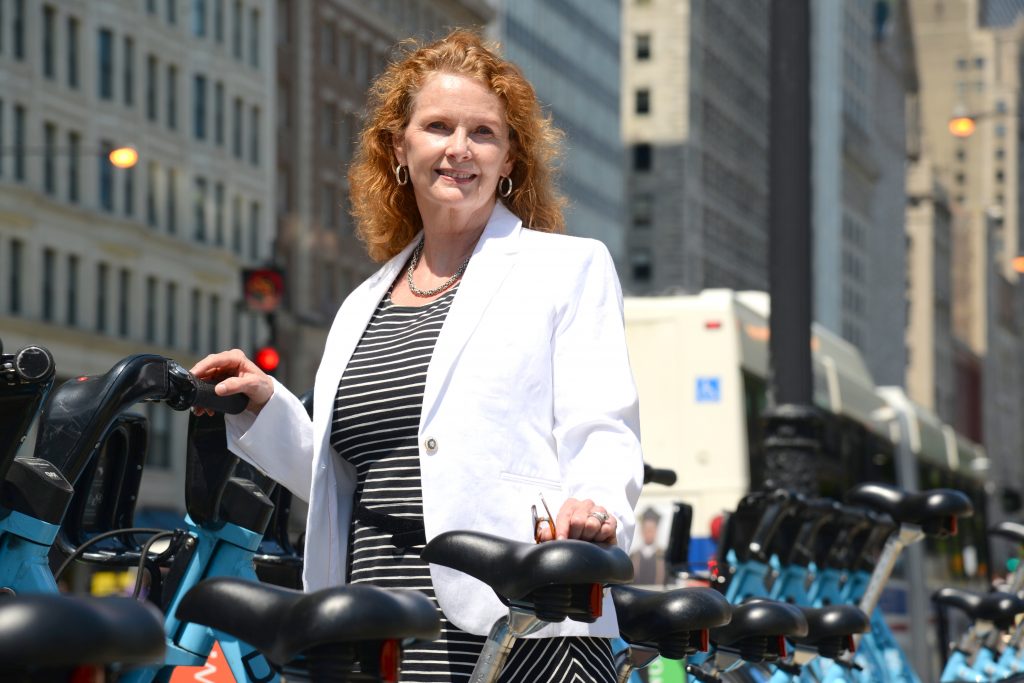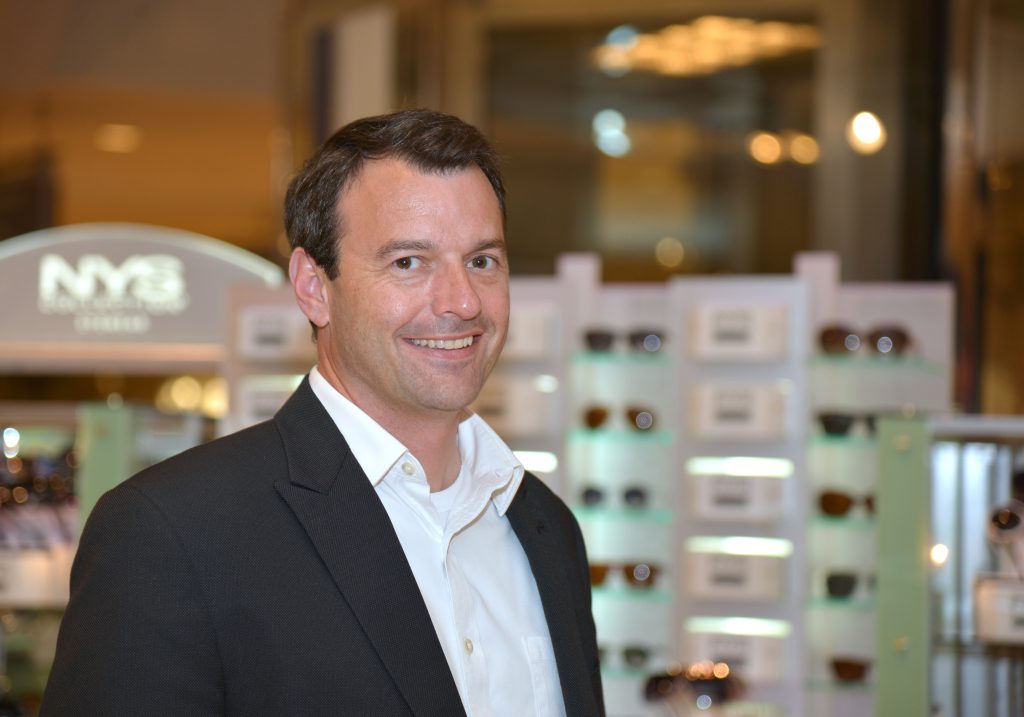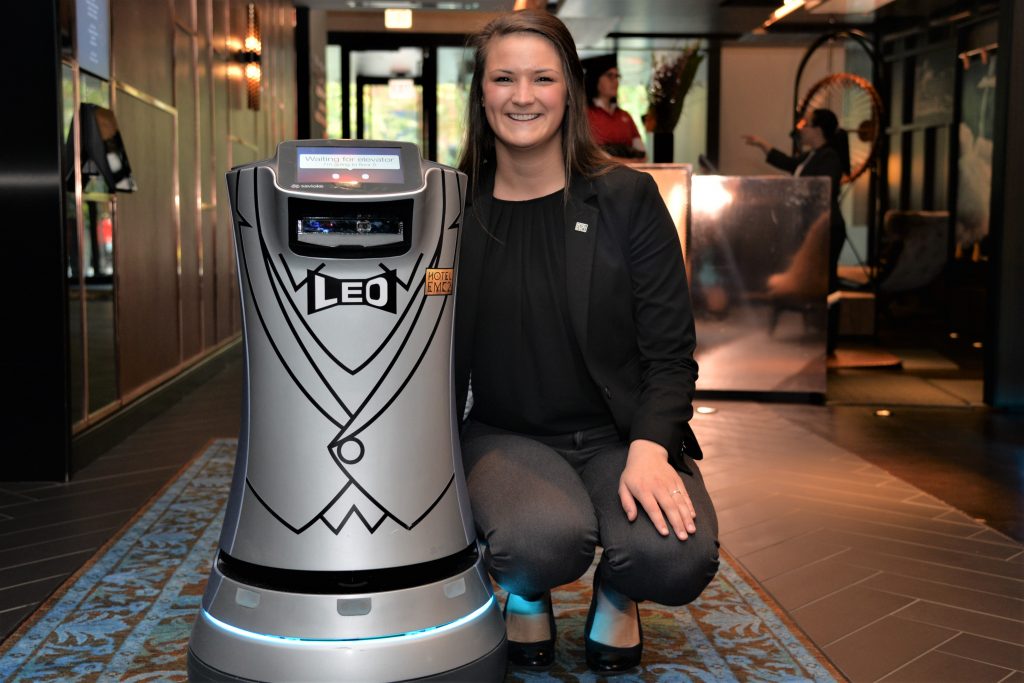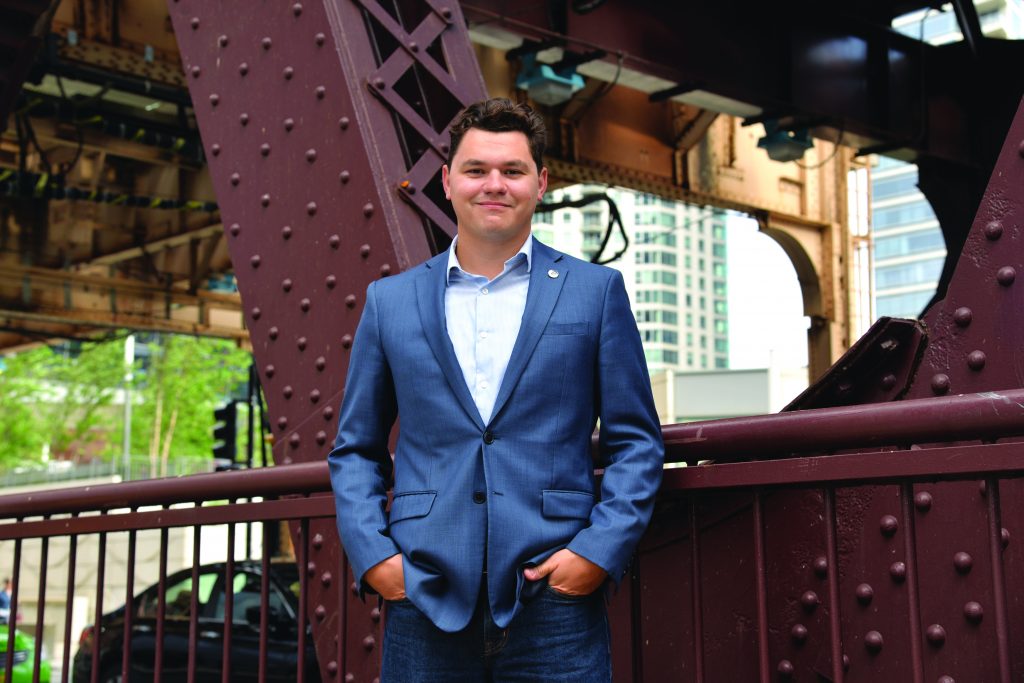
Ryan Zieman (BUS ’13) embraces a life that is rich in experiences.
Shortly after earning his marketing degree from DePaul, Zieman moved to Madrid because he yearned to live in a Spanish-speaking country and to travel. For two years he taught English, trekked to a dozen European countries and shared his experiences in a travel blog.
Zieman returned to Chicago in 2015 and is now a social media consultant for McDonald’s. Outside of work, he enjoys meeting friends for drinks or dinner three or four times a week.
He does not own a car, and instead uses Uber and other ride-sharing apps to get around. He knows the value of owning a home, but is holding off on buying one for now. Although he likes shopping, he doesn’t invest in extravagant things.
The things I do splurge on are usually food, wine and traveling,” he says.
As a member of the millennial generation, Zieman is not alone in preferring to spend more of his time and money on experiences, like travel and eating out, than on things, such as cars and pricey possessions. More than 3 in 4 millennials (78 percent) say they would choose to spend money on a desirable experience or event over buying something desirable, according to a Harris poll conducted for Eventbrite. The survey also found that 72 percent want to increase their spending on experiences in the future.
Millennial spending preferences are a potent force in the marketplace. Millennials number 80 million and surpassed baby boomers as America’s largest generation last year. Born between 1980 and 2000, millennials are entering their prime spending years and have a collective purchasing power of $600 billion annually. Accenture estimates that this will grow to $1.4 trillion by 2020.
The millennial generation’s hunger for consuming experiences, plus their increasing ability to spend, is feeding the growth of the experience-driven economy. To thrive in this new environment, professionals in a wide range of industries— from marketing and retail to hospitality and real estate—are radically changing how they do business.
Valuing What You Do, Not What You Own

What leads many millennials to seek experiences over stuff?
“For the baby boomer generation, which was pre-internet, the way to show status was the number of cars you had in the driveway, the types of cars, how large your house was, where your house was located. Consumer goods were a way to secure and legitimize your status in society,” says James Mourey, DePaul assistant professor of marketing and author of “Urge: Why You Really Want What You Want (and How to Make Everyone Want What You’ve Got).” “For young people now, that’s not necessarily the case. They grew up in a time when everything you do is being tracked online. So on Facebook, on Instagram, you’re keeping track of your life. You are sharing what you do versus what you own.”
DePaul Associate Professor of Marketing Sue Fogel says the phenomenon also is tied to how millennial consumers view physical things, which can lose perceived value over time, versus memories of experiences, which can be relived in the mind and online.
Experiences are valuable because you can consume them again and again,” Fogel says.
The rise of the sharing economy—from Uber and Divvy bicycles to collectives that lend everything from tools to kitchen equipment—also reflects changing attitudes about owning things, especially among millennials, she adds. “You don’t personally have to own something to benefit from it. There are things you can take advantage of when you need them and forget about when you don’t.”
Instagrammable Moments

The millennials’ less-is-more lifestyle can present a challenge for traditional shopping malls and their retail tenants. But Jeff Cloud (BUS ’97) and his colleagues at GGP are turning that challenge into opportunity by transforming mall shopping into an experience.
GGP manages a portfolio of 115 premium retail properties across the nation, including Water Tower Place, Oakbrook Center and Northbrook Court locally. “Our core business is to lease space, but we spend a significant percentage of our marketing dollars on consumer marketing in an effort to make our tenants as successful as possible,” says Cloud, director of digital platforms at GGP.
One of GGP’s marketing priorities is to make the consumer experience engaging “throughout the shopper journey, from couch to closet,” Cloud says. It begins, he explains, when a consumer, sitting on her couch at home, is inspired to buy something new. It proceeds through her trip to the mall, finding parking, navigating the mall, making a purchase, sharing the experience on social media and then heading home, where she places the item in her closet. For millennials, mobile devices are the go-to guide for this journey. To make this experience more engaging, Cloud says, GGP is investing in search engine optimization, digital advertising and social media, as well as responsive website design that features retail offers, mall event information, interactive maps and parking availability.
GGP is also strategically curating its tenants to make sure they appeal to experience-seekers. “The mall of yesterday was very heavy on the apparel side, but now we are changing that environment to be much more experiential,” Cloud says. GGP has designated more than $1 billion nationally for mall upgrades that include chic food halls, bowling alleys, fitness centers, outdoor lawn areas and movie venues.
We want to provide an environment and experience that’s Instagrammable,” Cloud says.
Surprisingly, the mix of mall tenants increasingly includes retailers that used to be online only. Amazon has a kiosk at Water Tower Place where it sells its Echo smart speaker. Fabletics, the e-commerce athletic wear company, is investing in bricks-and-mortar stores in several malls. “We embrace it because there is a positive correlation between the two (online and in-store retailing),” Cloud explains. “What we’ve found is that a tenant’s e-commerce sales increase in trade areas where a store is opened and decrease where a store has closed.” As a result, online retailers “are seeing the benefit of having the physical format as well.”
A Boon for Hospitality

For hospitality enterprises, the growth of the experience economy is a boon for business. To capture the millennial dollar, however, hotels, restaurants and other industry players need to tailor their experiences to millennial values and lifestyles, says Nick Thomas, assistant professor at DePaul’s School of Hospitality Leadership.
Take hotel rooms. “Baby boomers and Generation Xers look for consistency,” Thomas says. “They are more likely to book through hotel websites, and they want recognition through loyalty programs. They are looking for traditional hotel amenities—a large desk, a big bed, a big closet, big bathroom. The hotel room is an extension of their home.”
By contrast, millennials shop around for the best deals through sites like Booking.com and don’t care as much about loyalty points or standard in-room amenities. “They are looking to come in, drop off their bags and then get out into the neighborhood, into the experience,” Thomas says. They also seek hotels with quirky decor and unusual services that create unique experiences, he says. For example, millennials are flocking to the Albert Einstein-themed Hotel EMC2 in Chicago, where two robots, Cleo and Leo, bring towels and toothbrushes to guests’ rooms.
As for eating out, millennials like it—a lot! A Food Institute analysis found that millennials spend 44 percent of their food dollars—nearly $3,000 annually—on eating out, a 10.7 percent increase from 2010 to 2014.
Driving the choice of where they spend these dollars, Thomas says, is the millennial quest to experience food from around the world and to know that the ingredients are healthy and sustainable.
Nate Arkush (MBA ’15), co-founder and managing partner of the Milwaukee restaurant FreshFin Poké, agrees. His millennial customers seek a high-quality but casual dining experience with food that is customizable and healthy. “Our menu offers a build-your-own option with countless combinations,” he says. “We see a higher percentage of millennials designing their own meals because it allows them to be a part of the experience and have some ownership in how their meal tastes.”
Renting Experiences

Millennials’ preference for experiences over things is having a big impact on one of the milestones of the American Dream—homeownership.
“In Chicago, what you see is a pretty pronounced shift toward renting,” says Geoff Smith, executive director of the Institute for Housing Studies (IHS) at DePaul, which researches local housing market and affordability trends. Renters ages 25 to 34 accounted for 31.2 percent of all Cook County renter households in 2014, up from 25.7 percent in 2007, according to an IHS report.
Lifestyle choices and financial concerns certainly contribute to this trend—millennials marry later on average, and those who took out college loans may want to pay down that debt before plunging into homeownership. But many millennials who can afford to buy are still choosing to rent. “In particular what we noticed is big growth in renting by higher-income millennials, those earning 120 percent or more of the median income,” Smith says.
Renting in Chicago is appealing because it provides close access to city experiences and career opportunities, as well as the option to move easily to have these experiences elsewhere, Smith says. “They want to live in walkable neighborhoods, near transit, where there is access to jobs—and a lot of the jobs are increasingly in the core of downtown Chicago. From the economic mobility perspective, they might want to be more flexible, to be able to take a job in a different city and not get tied down with a mortgage.”
Developers are responding by building more rental properties with smaller units along transit routes. Smaller units mean more profit per square foot for developers, while offering millennial renters more affordable options that fit their lifestyle, Smith notes. “If you are going to spend most of your time outside of the apartment anyway, then maybe it’s not important to have a lot of amenities in the apartment, although you may want the amenities in the rest of the development.”
This trend reaches the next level with co-living—apartment-sharing buildings that rent by the room. Over the summer, New York-based Common opened Common Damen in Chicago’s Ukrainian Village neighborhood. The 12-bedroom development not only offers renters fully furnished, utilities-included rooms, but also the services of a full-time community manager who plans events and outings for residents.
“There’s clearly more demand than supply, so we’re going to keep growing to meet the demand,” Brad Hargreaves, Common’s CEO, told Crain’s Chicago Business. “It’s a huge, huge market.”
Mining Digital Gold, Meeting Millennial Expectations

Whether you are marketing a place to live, eat, visit or shop, millennials expect brands to create authentic, customer-centric experiences for them, says Eric Acevedo (BUS ’08), business development specialist for Solstice, a digital innovation and consulting firm that helps companies develop new products and adapt to new technologies.
“As millennials, we spend insane amounts of time and money on our digital devices and connected to the internet. We expect brands to have their act together when delivering experiences digitally, and a lot of them are falling behind,” says Acevedo, a millennial himself. “We want brands to create delightful and seamless digital experiences, which includes exceptional customer service online, timely deals, relevant recommendations, savvy social media and the use of emerging technologies to bridge the gap between offline and online.
“Increasingly, forward-thinking brands are leveraging new technologies like machine learning, artificial intelligence, the ‘internet of things’ and even augmented and virtual reality to deliver delightful digital experiences and connected products driven and personalized by data,” Acevedo says. “That’s where the gold is right now, and companies are working hard to mine that gold and build digital experiences for their customers.”
By Robin Florzak
